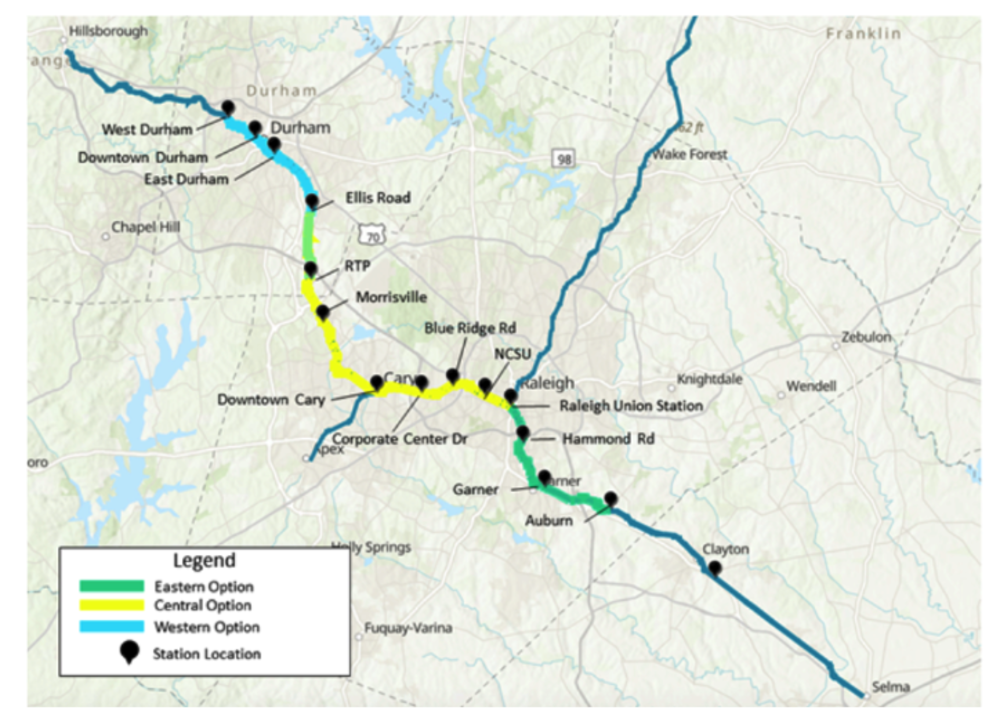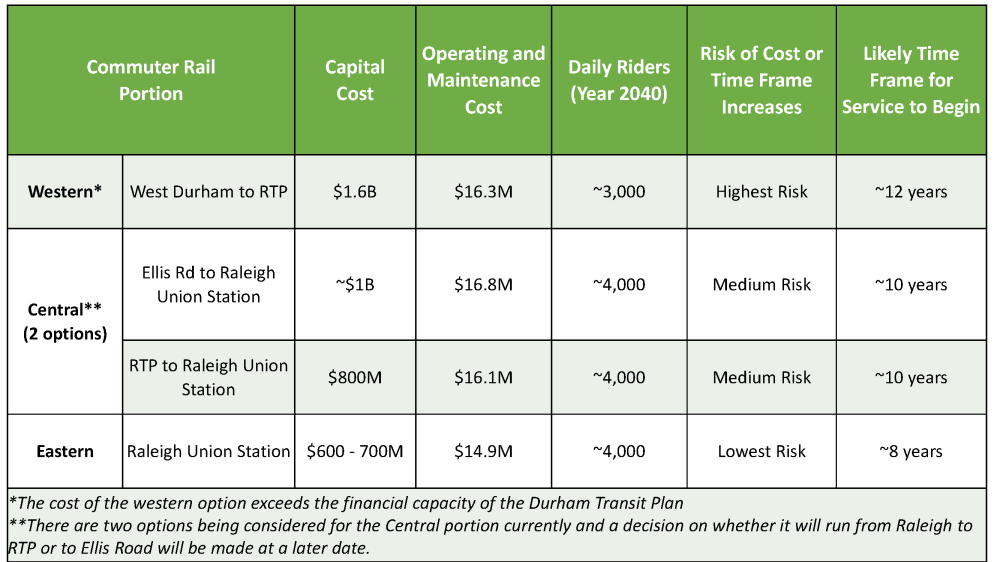Greater Triangle Commuter Rail Project Feasibility Study Phase II Survey
Greater Triangle Commuter Rail Project Feasibility Study Phase II Survey
The results of the Greater Triangle Commuter Rail feasibility study provide options for implementation of regional passenger rail service. Your input is needed for the next step. The survey is open from January 5 - February 19, 2023.
Transit partners across the Triangle are committed to going forward together. Completing the demographic information below helps GoTriangle meet our data collection requirements and public involvement obligations under Title VI of the Civil Rights Act of 1964. The information collected will help improve how we serve the public. Please answer the demographic questions (which will not be associated with your contact information) to help us ensure we are reaching representatives of the region we serve and advancing equitable outcomes for this phase of study.
The feasibility study assessed the opportunity for regional passenger rail service in the existing rail corridor between west Durham and Garner or Clayton. The results of the Greater Triangle Commuter Rail feasibility study provide options for implementing regional passenger rail service connecting Durham, Research Triangle Park, Morrisville, Cary, Raleigh, Garner, and potentially Clayton. This service would share the corridor with existing and future freight and passenger trains.
The proposed service would come at a significant monetary cost. While the corridor takes advantage of existing rail infrastructure and right-of-way, the necessary investments in additional tracks, stations, trainsets, and maintenance still add a significant monetary cost to the project. Because of financial constraints, engineering challenges, and coordination complications that could delay the realization of the entire proposed corridor, the study considers phased implementation which would a valuable and viable piece of the commuter rail service that could benefit the region, while local leaders and project teams work to develop the remainder of the project corridor. The study considered three different options for staged implementation beginning in either the Eastern, Central, or Western portions of the corridor.
The Eastern portion would begin at the Auburn Station in Garner and extend to Raleigh Union Station in downtown Raleigh. The Central option would begin at Raleigh Union Station in downtown Raleigh and extend to either the RTP station or Ellis Road. The Western option would begin in RTP and extend to West Durham Station near Duke Hospital.
Out of the three portions studied in the report, the Western option has considerable challenges associated with construction including higher cost and the longest implementation time frame. Due to its challenges, the western option is considered for a later implementation stage. Therefore, local leaders would like your input on whether the project should begin construction with the Eastern or Central portion.
Next you will find a map and chart providing more information, followed by a brief survey.

